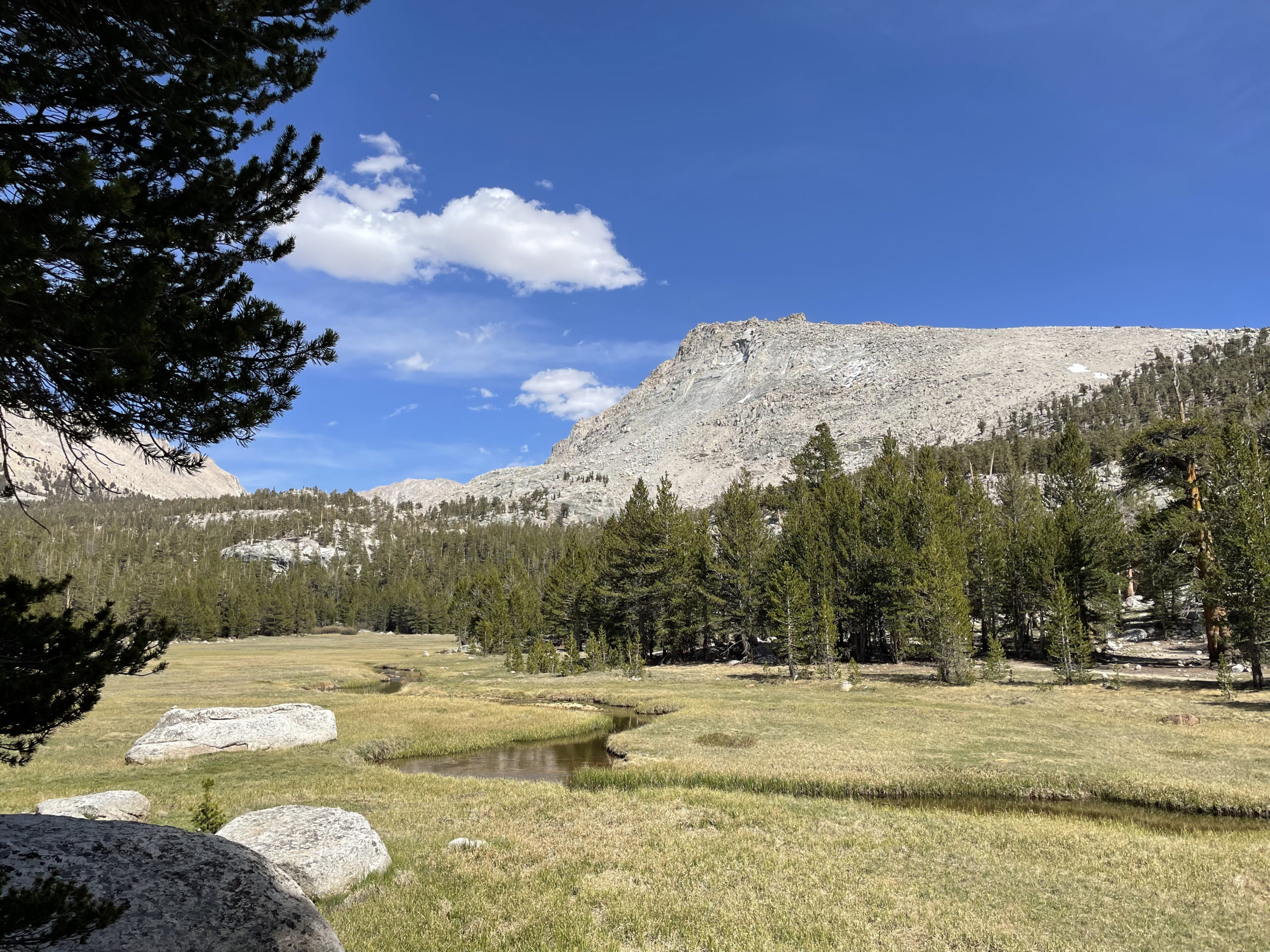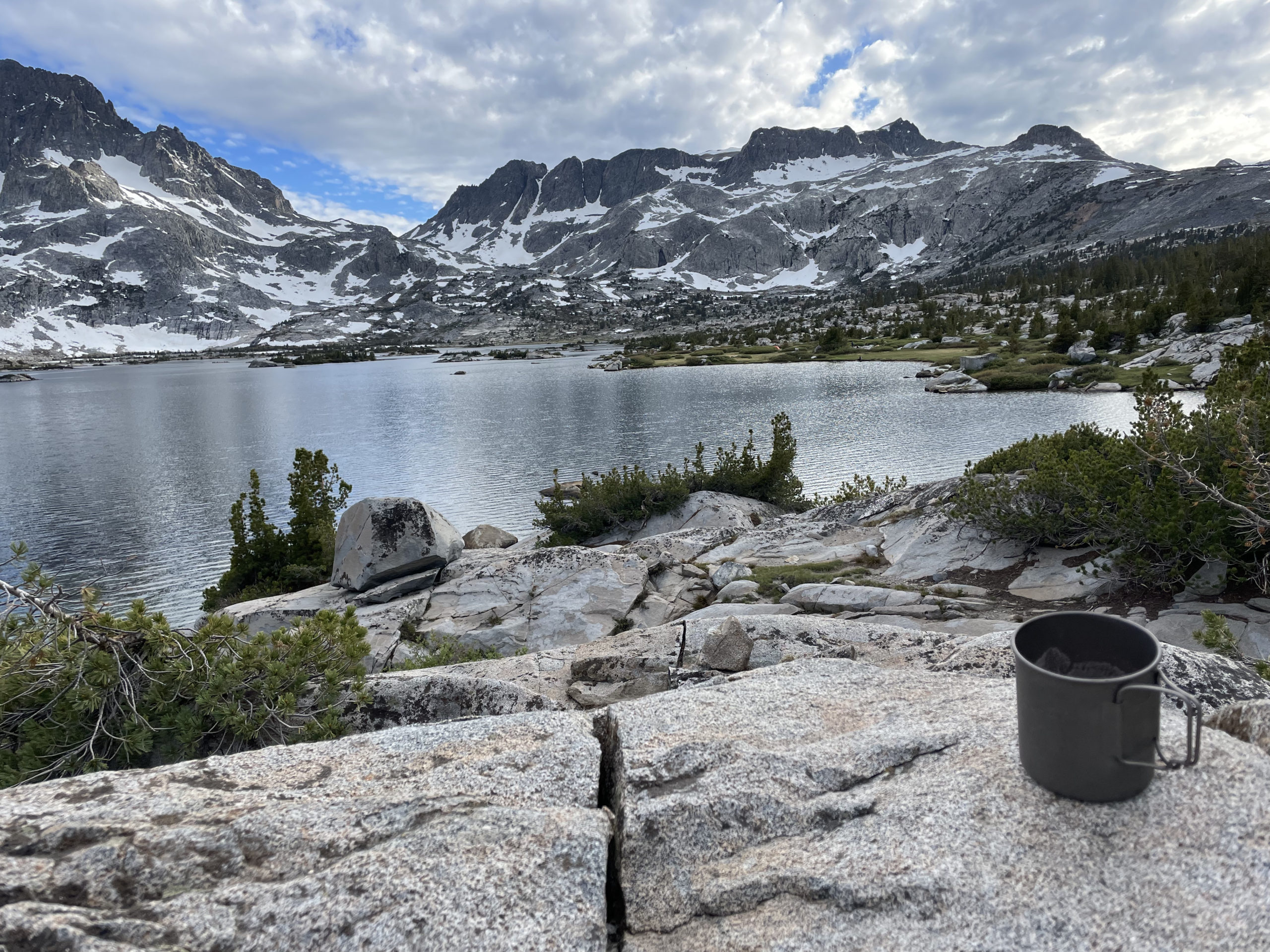On Hiking the Pacific Crest Trail
I spent this summer—and much of the spring and fall—hiking the Pacific Crest Trail.
Spanning over 2,600 miles from the Mexican border to the Canadian border, the PCT has some 489,000 feet of climbing, which is akin to climbing Mt. Everest from sea level 17 times. I started in early April and finished near the end of October. I was able to hike the whole PCT except for two sections that were closed by fire when I got to them—a 50 mile section in Oregon and 93 miles in northern California. Due to the big wildfire season, I also had to do things out of order: California first, then Washington, and ending with Oregon.
I journaled and blogged throughout. But I want to step back and describe what I’m taking away from the whole experience. Trying to put that in words has been incredibly difficult. Here’s my best attempt:
Movement heals. Time in nature heals. The combination of movement in nature for months on end has been the single most healing experience of my life. With hours of solitary walking, I found my mind inevitably turned to some of the darkest moments of my life—moments where I was badly hurt by someone else, and also moments from my past where I feel shame for not living with my own integrity. Hiking the PCT gave me time to face all of these parts of my past without flinching. In the end, I got to a place of compassion and even forgiveness both for myself and for those who hurt me. Sometimes that looked like a difficult phone call with someone from my distant past, pacing in a motel room in some trail town. Sometimes that just looked like journaling and watching the sunset over the mountains and starting to feel better about the past.
Life was also very simple on the PCT. All day long, I focused on walking. I had to treat water, find campsites, and make sure I got to my next resupply before I ran out of food. I had to deal with water crossings, weather, snow, and dry stretches. But for the most part, it was a very low-stress kind of living. I think it was low-stress precisely because I had few of the fraught human-to-human interactions that are a daily part of living in modern society, having a family, and working in nonprofit management.
I’m an introvert. When I’m in social settings, even with close friends or my partner, there’s a part of me that’s putting on a mask. It feels like I’m projecting a sense of a person, an idea about who I am. This sense is heightened when I’m in larger social settings, at work, and when I’m posting online.
Solitude doesn’t entirely erase this problem, but unobserved time is a way I recharge.
And, in large part because I spent so much of my time on the PCT hiking and camping solo, I noticed how extended time unobserved changed me. On the trail, my mind felt more playful, more creative, gentler, more self-confident, less self-critical.
Conversely, solitude also meant I felt more connected to people. I connected very quickly and deeply with the folks I did meet on trail, as if I’d known those trail friends for years instead of days. I also noticed that I connected deeply with the folks I met in towns—especially the crew of Portland trail angels who took me in after I was badly injured in Southern Washington. It felt like my heart was cracked wide open by the whole experience of hiking the PCT.
In the end, the hardest part of the PCT wasn’t physical. It was the mental fortitude to keep going during the hot, uncomfortable, uninspiring, bug-riddled hundreds of miles through Northern California. The trail is draining, and I lay down in my tent most nights feeling totally beat. During those hard weeks in Northern California, I could really understand just how tempting it is for people to skip ahead to more interesting sections or leave the trail entirely.
I also had ample opportunity to practice bravery. I was solo for all of the technical water crossings and snowy passes. I found this intimidating at first, but in the end I’m glad it worked out that way. I got a lot of practice in the self-talk I needed to get through challenges that I personally found intimidating, and grew a lot more confident in my ability to handle whatever was thrown at me.
And maybe bravery is something that gets easier with practice. I like to think that having to do something scary every day on my own in the Sierra helped build in me the muscles of courage, so I’ll be better able to be brave in anything else I face.
There are so many other things I could say about the trail, but I guess I’ll just end by noting that one thing that really shifted for me while I was on the trail was how at home I felt sleeping in the wilderness. I remember the first few nights of solitary camping being vaguely uncomfortable for me. Over time, I came to see my tiny tent as a cozy little home no matter where I set it up. I have so many wonderful memories of stretching out on my thin sleeping pad and looking up at the star-strewn sky and feeling incredible gratitude that I could be in that exact spot, at that exact moment in time, with that starlight above me. And then falling into blissful, exhausted, overwhelming sleep, knowing I was right where I wanted to be. That sense of quiet belonging in nature was so precious and so sweet. It’s the thing I miss most about the trail.
Would I thru-hike another trail?
People have asked me if I’d do another thru-hike, and the answer is complicated. On the one hand: yes, absolutely, in a heartbeat, please sign me up for the Continental Divide Trail! But in reality, I don’t know if another thru-hike is ever in my future.
 Being gone for so long was very hard on my relationship. Without going into details, I’d say that finishing a thru-hike while staying married is its own special challenge. It was also hard on my other close friendships; I often felt like I couldn’t be supportive and available for my friends going through difficulties. Plus, I put my whole life on hold to make this happen: quitting a job I loved, turning down cool career opportunities, even waiting to adopt a dog. Plus countless other big and small decisions I made so that I could be in a place in my life where it was feasible for me to leave everything behind for half a year. I’m not sure when or if I’d make those sacrifices again.
Being gone for so long was very hard on my relationship. Without going into details, I’d say that finishing a thru-hike while staying married is its own special challenge. It was also hard on my other close friendships; I often felt like I couldn’t be supportive and available for my friends going through difficulties. Plus, I put my whole life on hold to make this happen: quitting a job I loved, turning down cool career opportunities, even waiting to adopt a dog. Plus countless other big and small decisions I made so that I could be in a place in my life where it was feasible for me to leave everything behind for half a year. I’m not sure when or if I’d make those sacrifices again.
So as much as I love thru-hiking and feel tempted to hike the CDT, it’s not my plan for the foreseeable future. Instead, I’m healing my many hiking injuries and slowly returning to my first love: long-distance running. Which is arguably also hard on my career and my marriage in its own way but fits a little easier into my life and involves a lot more showers.
More About My PCT Journey
I blogged regularly about my journey on The Trek. Check it out if you want to read more detailed experiences. Note that the entries are listed in reverse chronological order. If you want to see the beginning of my trip, start here.
I also put photos and reflections on Instagram.
This website contains affiliate links, which means The Trek may receive a percentage of any product or service you purchase using the links in the articles or advertisements. The buyer pays the same price as they would otherwise, and your purchase helps to support The Trek's ongoing goal to serve you quality backpacking advice and information. Thanks for your support!
To learn more, please visit the About This Site page.














Comments 3
Congratulations on finishing your PCT hike. Enjoyed your excellent journaling. David Odell AT71 PCT72 CDT77
Hooray for you! As a brand new high school graduate in 1973, my best friend and I set out to section hike the State of Washington. We didn’t finish. This summer I am starting once again, with my permit approved to restart at Cascade Locks in July. Despite not finishing that summer, the time we spent on the trail in 1973 resulted in a life changing experience. This year I will complete the journey.
Your photos are spectacular.